2025 Event

On February 2, 2025, USask faculty, staff and students took to the TEDxUniversityofSaskatchewan stage to ask tough questions, push boundaries and inspire impact for meaningful change with and for our communities. In the spirit of ideas worth spreading, this event profiled compelling stories of ambition, achievement, innovation and inspiration.
who made our 2025 event a success.
Bishnu Acharya | Marjorie Delbaere | Erika Dyck
Christopher Eskiw | Kayley D. Lawrenz | Kerry McPhedran
Véronique Mathieu | Joseph Neapetung
Valerie Verge | Franco Vizeacoumar
Jordan Woodsworth
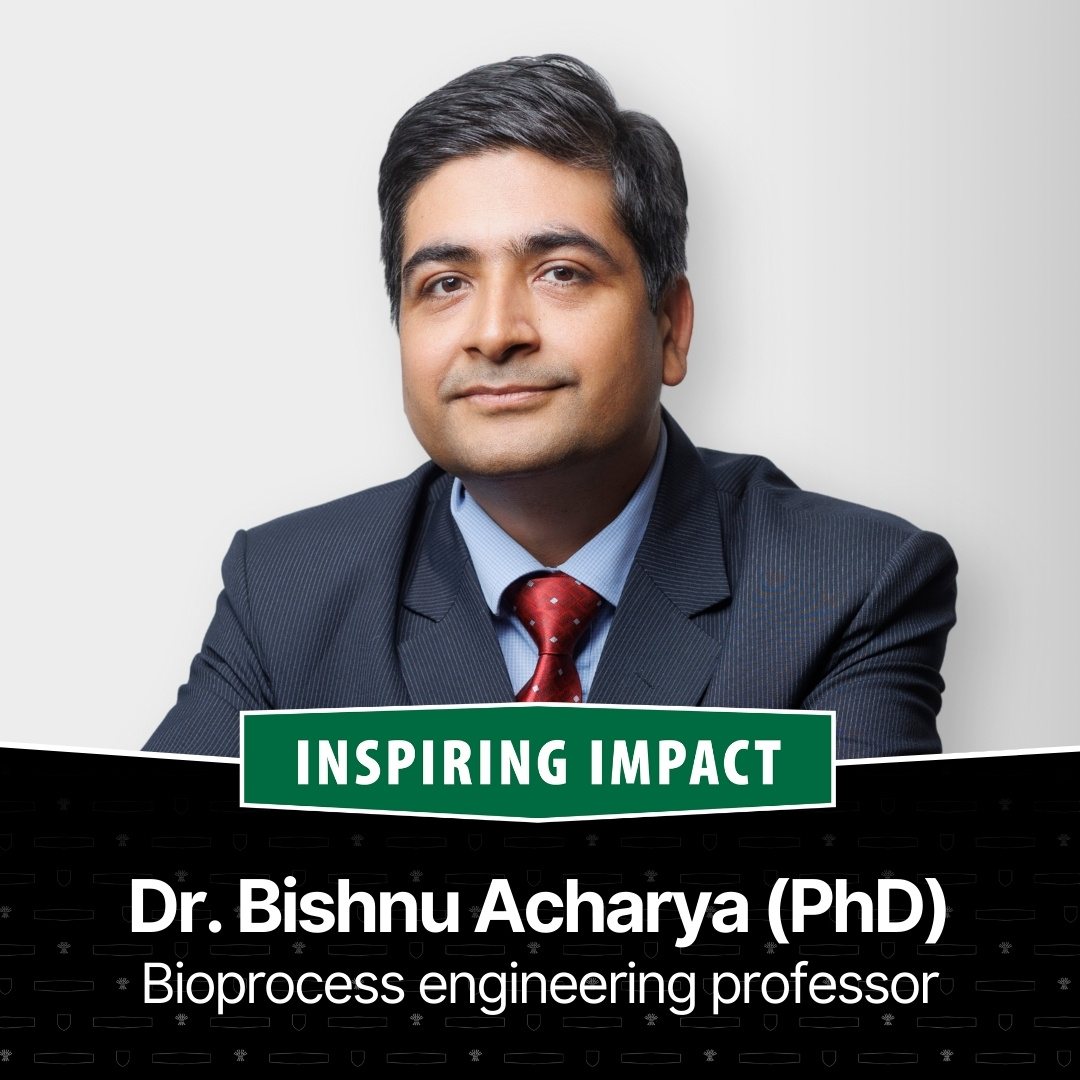
Turning waste into wealth: Pioneering the bioeconomy for a sustainable future
By turning waste into value through the bioeconomy, my research team at the University of Saskatchewan is addressing the urgent crises of climate change and resource depletion head-on. This work isn't just timely; it's transformative. Converting food-waste into bioenergy, biomaterials and food products doesn't just reduce greenhouse gas emissions—it revolutionizes our approach to sustainability by creating value, generating wealth and fostering a circular economy. Our research vision extends beyond traditional science. It's about igniting a movement of science-based entrepreneurship, where the younger generation's creativity and innovation are the driving forces. This isn't only about mitigating harm; it's about creating a regenerative cycle that transforms waste into valuable resources. In the next 10-15 years, our society stands on the brink of a significant shift towards this new economy. It's imperative that today's youth lead this charge, setting a precedent for a sustainable, resilient future. Through entrepreneurship, we can inspire impactful change, turning what was once waste into the foundation of a thriving, sustainable world.
Dr. Bishnu Acharya (PhD) is a highly-celebrated associate professor in the Department of Chemical and Mechanical Engineering and Research Chair of the Saskatchewan Ministry of Agriculture in Bioprocess Engineering at the University of Saskatchewan. His research focuses on innovative approaches for converting biomass into high-value products such as bioenergy, biochemicals, biomaterials and functional food. With a strong track record of publications in high-impact journals, and training of next generation personnel in collaboration with public and private organizations and funding agencies, he has contributed significantly to advancing knowledge in bioprocess engineering. Acharya is a founding member and scientific advisor of TuniStrong Technologies Inc. and CanXtract Innovation Inc., spin-offs from his research activities. He earned his bachelor’s degree in mechanical engineering from Tribhuvan University, Nepal, Master of Engineering in energy technology from the Asian Institute of Technology, Thailand and PhD in mechanical engineering from Dalhousie University, Canada.
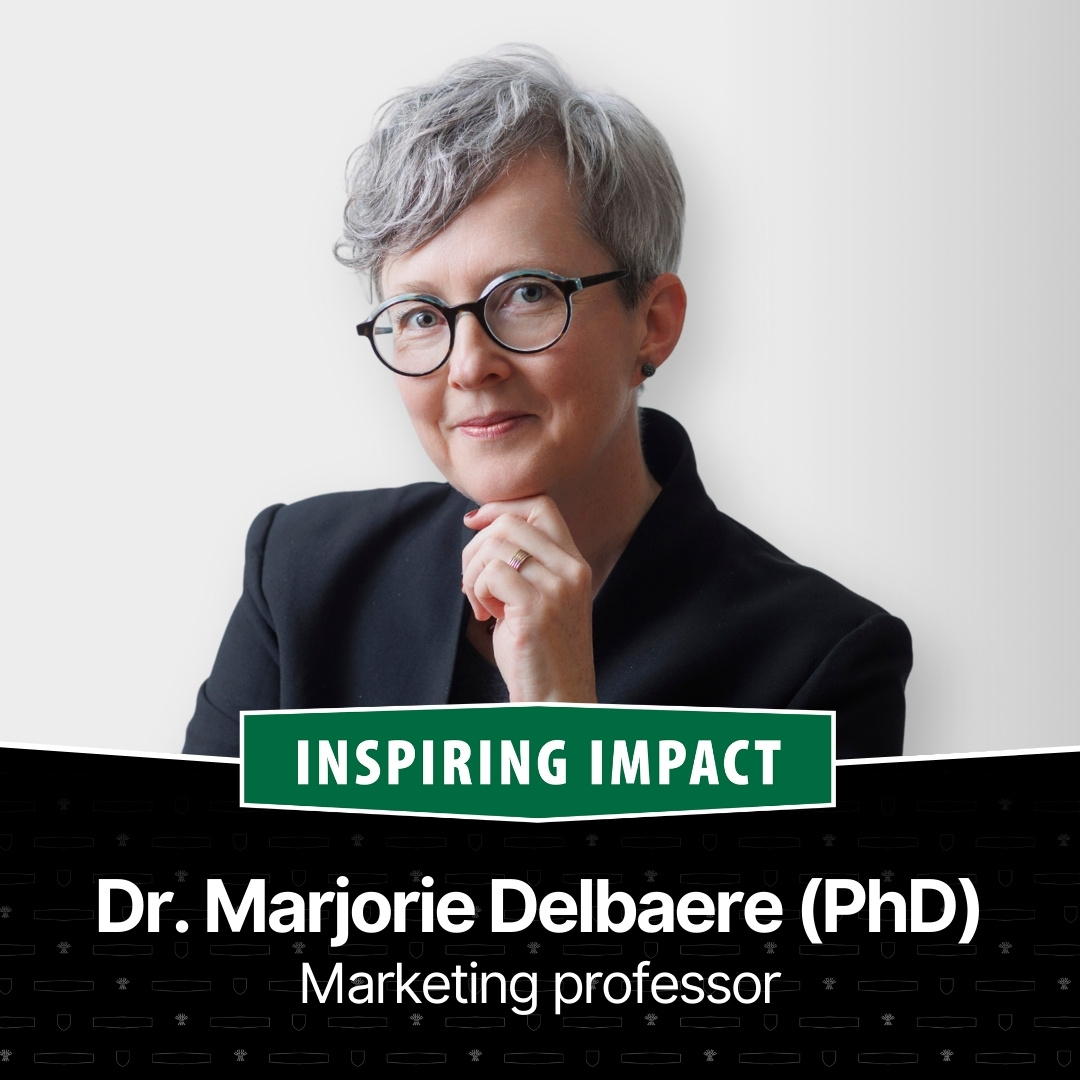
Is the art of war good business?
War metaphors are everywhere in business. We unknowingly use them all the time by saying things like: businesses target consumers, battle for positions and engage in guerilla marketing. The concept that 'Business Is War', however, does not align with the shift toward socially conscious and environmentally-focused enterprise that we see in the market today. Rather than seeing other companies as enemies in a zero-sum game in which market share is captured, I suggest it is more productive to focus on the creative, value-generating aspects of business exchanges and encourage the view of business as a social action, not war. It is time to reframe our understanding of business from defeating an enemy to creating value.
Dr. Marjorie Delbaere (PhD) is a professor of marketing and the acting dean at the University of Saskatchewan Edwards School of Business. She earned her Bachelor of Commerce and PhD from the University of Manitoba and first joined the Edwards School of Business in 2007. Prior to her academic career, she worked in marketing and communications for Hewlett-Packard and Agilent Technologies in Germany. She teaches marketing strategy and theory in undergraduate, graduate, and executive programs. In addition to her teaching and administrative roles, Delbaere carries on an active research program investigating communication and persuasion surrounding complex and controversial topics, primarily in pharmaceutical products and health care.
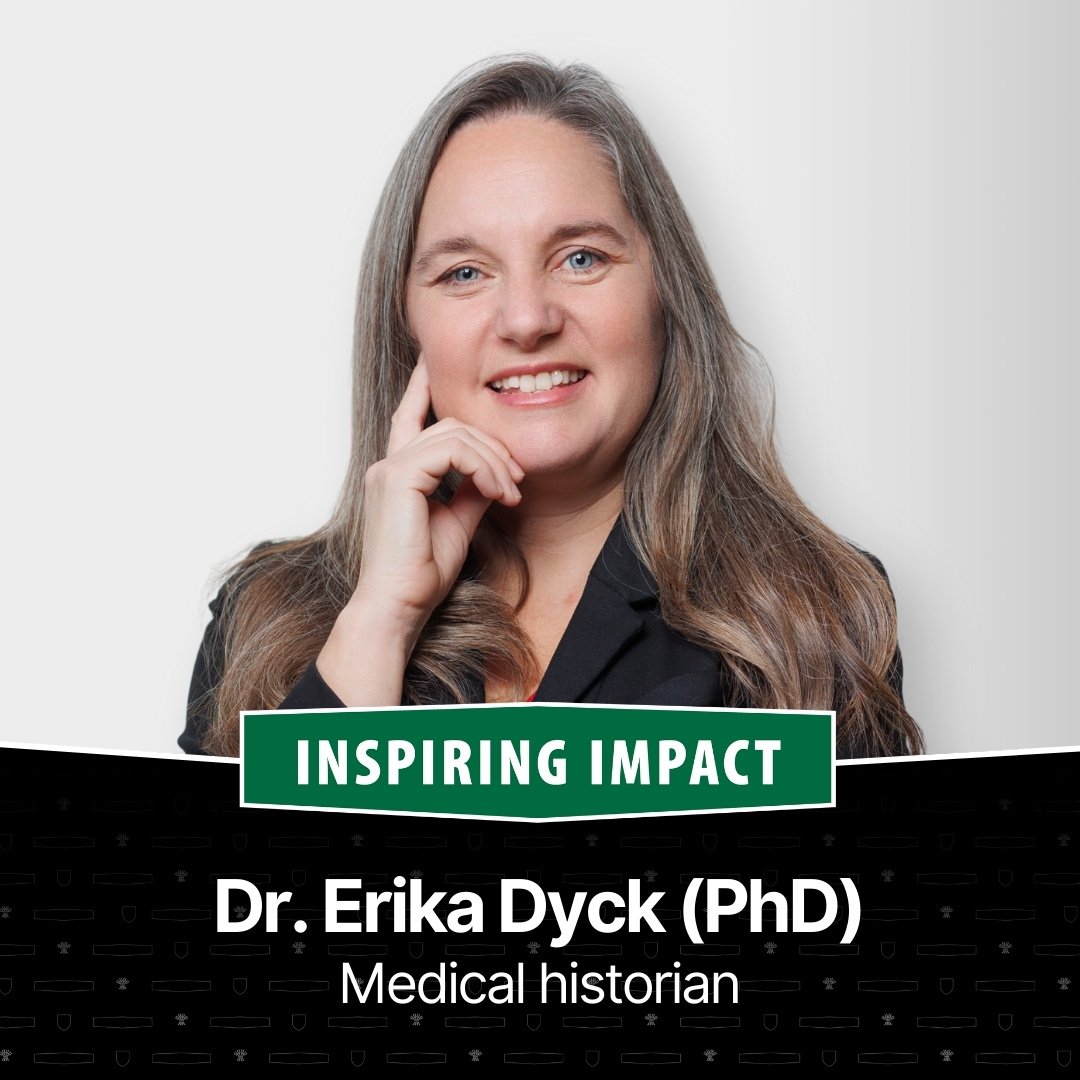
Just say know: Psychedelic drug history
Neuroscientists and psychiatrists today suggest that psychedelic drugs may provide us with the answers to age-old questions about addictions and mental suffering. Scientists are even claiming that we are entering a psychedelic renaissance. For those of us raised during the war on drugs, we grew up learning that psychedelic substances like “acid” or LSD have the potential to fry our brains like an egg on a hot frying pan. Now we are told that these same substances may hold the key to major medical breakthroughs. What has changed? As a medical historian who has spent the past 25 years studying psychedelic drugs, I consider what is at stake by revisiting psychedelic history and exploring a new path forward.
Dr. Erika Dyck (PhD) is a professor and a Canada Research Chair in the History of Health and Social Justice at the University of Saskatchewan. She is an internationally recognized scholar in the history of psychedelics, having delivered hundreds of lectures on the topic around the world. She is the author or editor of 14 books, including several award-winning publications. From her first book Psychedelic Psychiatry (Johns Hopkins UP, 2008) to her most recent book Psychedelics: A Visual Odyssey (MIT Press, 2024), her work covers medical and cultural history about how psychedelics have taken root in cultures around the world.
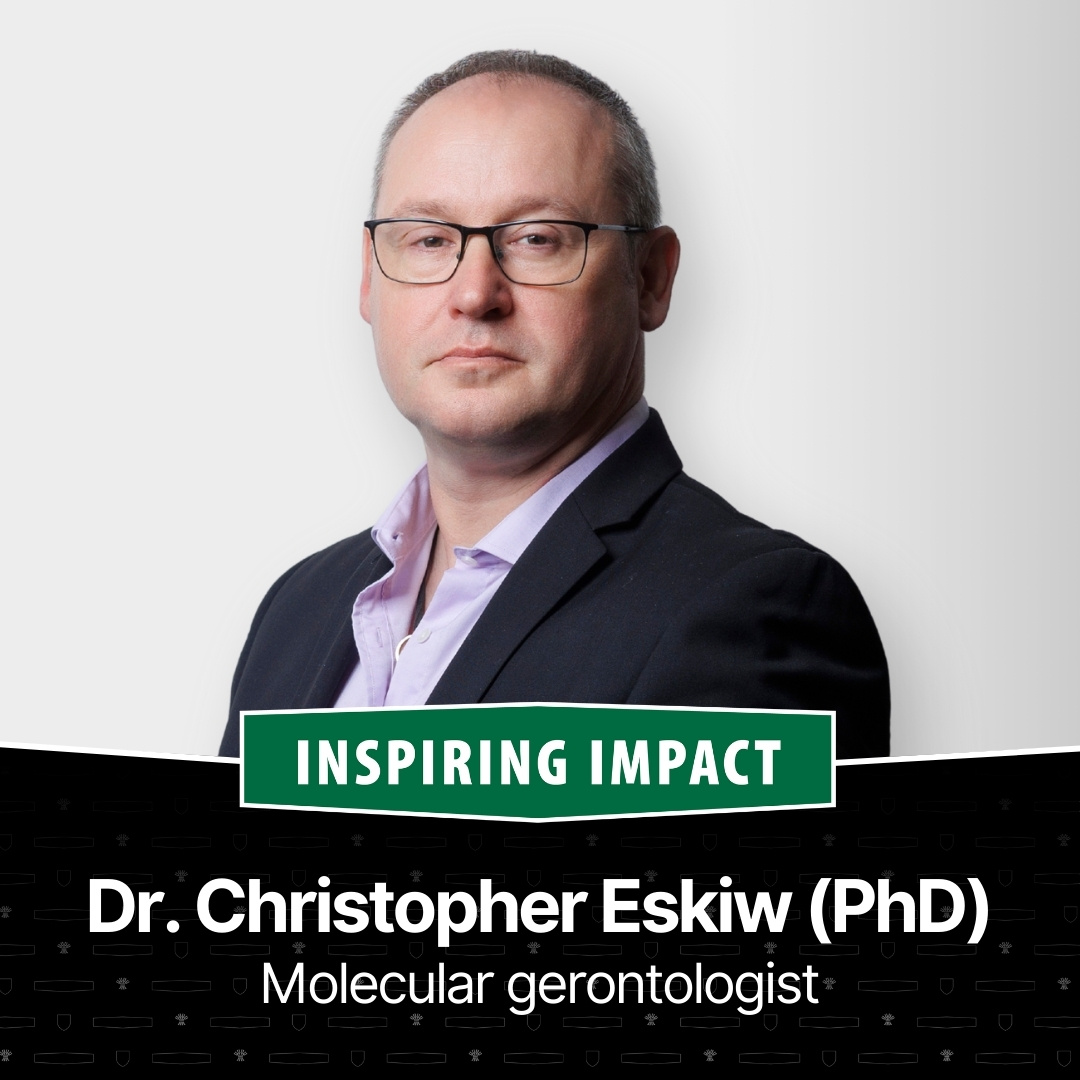
Aging: Inevitable or preventable?
Does the secret to living longer, healthier lives lie within our genetic code? Our DNA is the blueprint for all that we can and will become. However, there is another layer of information in our DNA called the epigenome, that acts like dimmer switches to turn longeivty genes 'on' and turn genes associated with aging 'off'. As a molecular gerontologist, I explore the challenge of turning these switches on and off at the right time with the goal of extending our healthspan and lifespan. Suprisingly, the key to this mystery may be closer than we think—at the end of our forks.
Dr. Christopher Eskiw (PhD) is a professor and researcher in the Department of Food and Bioproduct Sciences in the University of Saskatchewan's College of Agriculture and Bioresources. His research explores how dietary compounds influence the expression of genes associated with lifespan and aging. Eskiw completed his masters degree in anatomy and cell biology at the University of Saskatchewan and his PhD at the Institute for Medical Science at the University of Toronto. He then continued his research by moving to the UK for postdoctoral fellowships at both the University of Oxford and University of Cambridge. Eskiw was a faculty member at Brunel University, London (UK) from 2010-2013 before returning to the University of Saskatchewan and establishing his lab in nutrigenomics and genome organization.
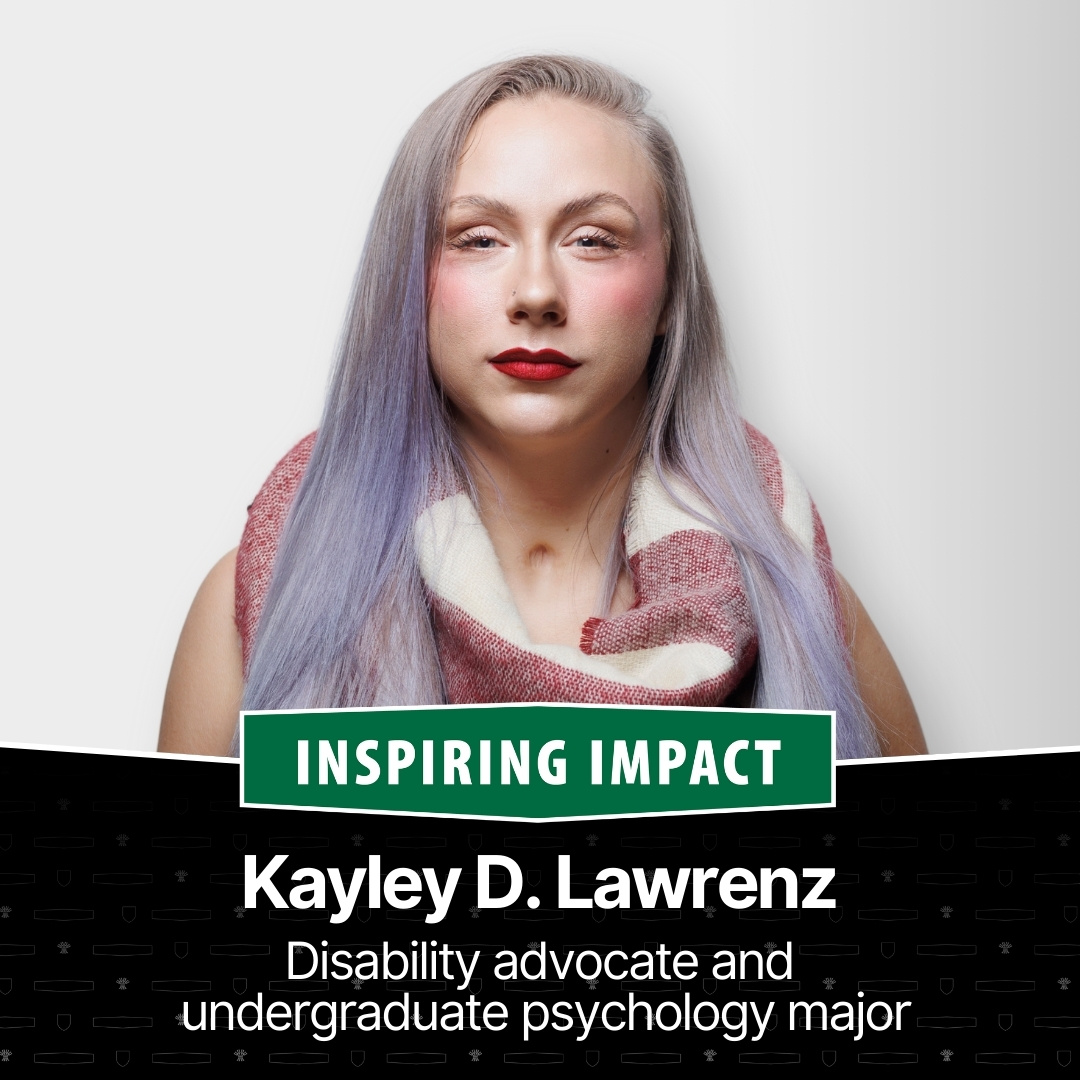
Can we break free of ableism?
Ableism—a system that places value on our bodies and minds based on society's ideas of what is 'normal' and 'desireable'—fuels inequality. As someone who has both a body and mind that society deems 'undesirable', I have been characterized as disabled. Having experienced firsthand the profound injustices this system imposes, I aim to challenge these norms and call for a new framework that values diverse bodies, minds and experiences. I urge you to join me in this mission, as we reimagine a future that goes beyond binaries and embraces the inherent beauty and wisdom that resides within each of us.
Kayley D. Lawrenz is a 28-year-old undergraduate psychology student at the University of Saskatchewan, aspiring to become a clinical psychologist. Kayley has lived with a C6 cervical spinal cord injury (SCI) since the age of 16 and was diagnosed with Generalized Anxiety Disorder in 2024. She is passionate about sharing her education and lived experience to increase awareness and understanding of social issues for the betterment of our world. Kayley’s advocacy work spans collaborations with organizations such as Spinal Cord Injury Canada, the Care Collaboratory research team and secondary and post-secondary schools. She has engaged in qualitative research focused on long-term care, written and presented about ableism and the social construction of disability, and volunteered to support people with disabilities and those impacted by sexual violence. She is motivated by a desire to live in a world that celebrates our universal responsibility and cultivates empathy toward all.
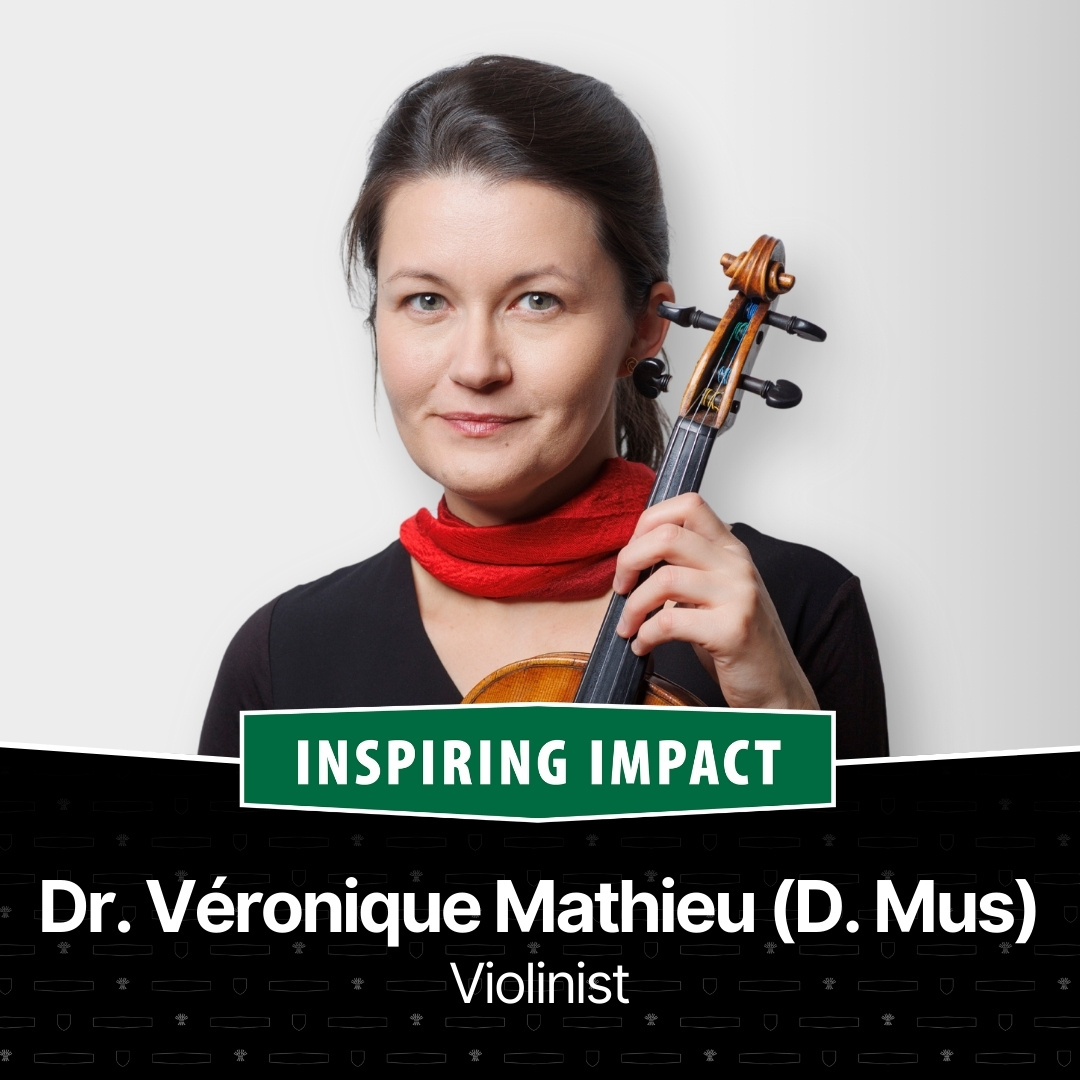
The many voices of women composers
The evolution of works by women composers spans centuries. Despite enduring gender biases and societal constraints that have historically limited opportunities for women in classical music, many female composers have overcome these challenges to make significant contributions to the global musical landscape. One of the earliest women composers to leave a lasting mark was Hildegard von Bingen (1098-1179), a German nun and mystic whose sacred compositions and liturgical chants stand among the most important music from the medieval period. Throughout the Classical and Romantic eras, race and gender barriers continued to hinder many women composers from fully devoting themselves to their craft. It is only from the second half of the 20th century onward that contributions by female composers have begun to receive increased recognition. In this short recital, I will offer a glimpse into some of the musical contributions made by women composers to the violin repertoire, focusing on American and Canadian music.
Dr. Véronique Mathieu (D. Mus) is a Canadian violinist who serves as the David L. Kaplan Chair in Music and an associate professor of violin in the University of Saskatchewan’s School for the Arts. Described as a violinist with ‘chops to burn, and rock-solid musicianship’ (The Whole Note, Toronto), Mathieu enjoys an exciting career as a soloist, chamber musician and music educator. An avid contemporary music performer, she has commissioned and premiered numerous works by American, Brazilian and Canadian composers, and has worked with composers such as Pierre Boulez, Heinz Holliger and Krzysztof Penderecki. Mathieu has performed as a soloist with orchestras around the world, and has recorded for labels including Radio-Canada, Parma, Centrediscs, Naxos and Pheromone. She previously served on the faculty at State University of New York and the University of Kansas. She is the co-founder and artistic director of the non-for-profit arts organization NAVO and curates the Amati Concert Series in Saskatoon.
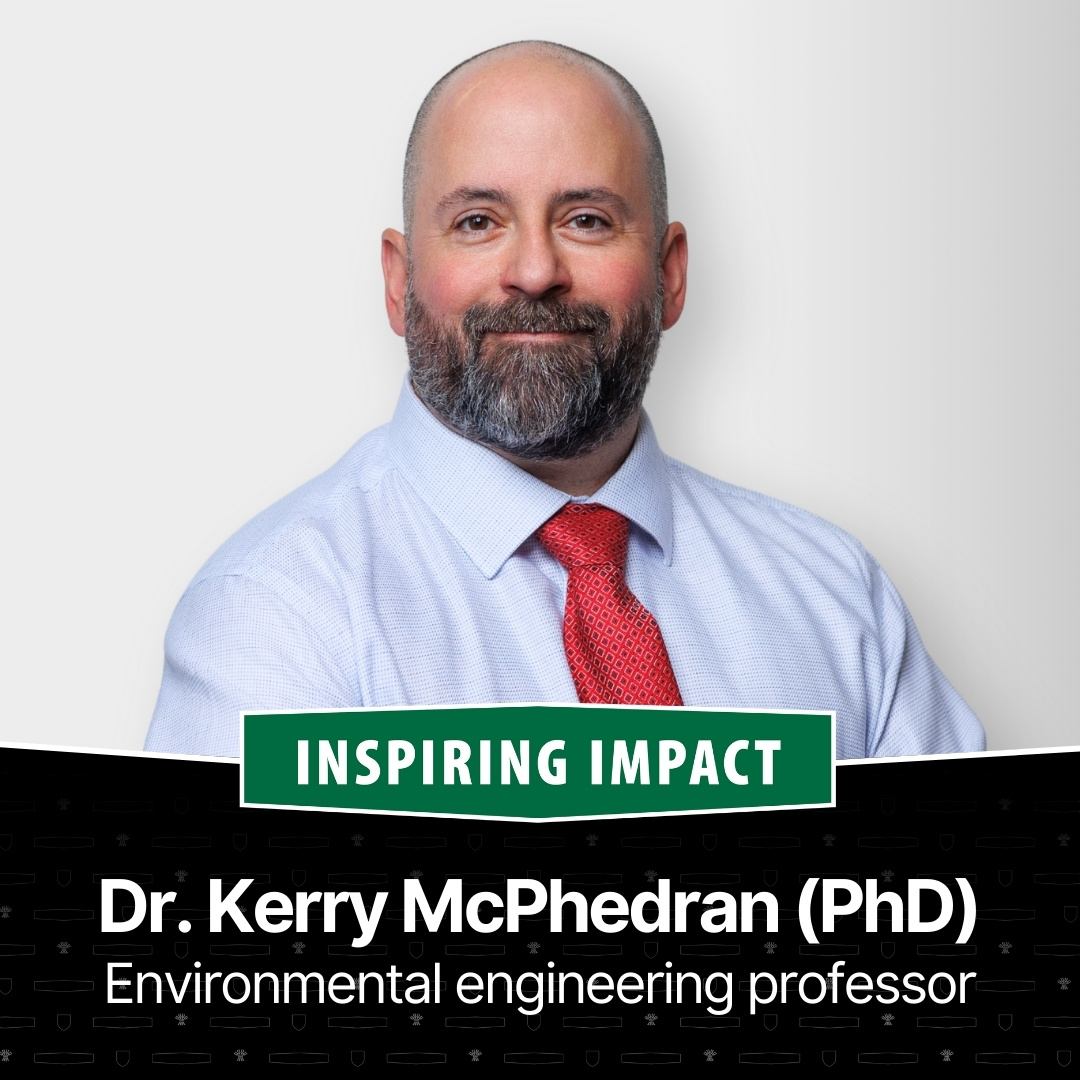
Shifting the ‘waste’ out of wastewater: Solving urban water shortages through reuse
Where does the water go when we wash our dishes, take a shower, or flush our toilets? This ‘wastewater’ goes down your drain, into big pipes underground, and finally gets treated in municipal wastewater plants before being released back into our rivers and lakes. But there is a better use for this ‘liquid gold’. The reuse of municipal wastewater, and stormwater from rain and snow, is gaining traction worldwide. However, a significant barrier to adopting widespread reuse is the societal stigma associated with the idea of 'toilet to tap' and the ‘ick’ factor. But if it is good enough for astronauts, why not the rest of us too? As technologies are being developed and refined, my talk will show you how we can strive to remove the ‘waste’ from our wastewater!
Dr. Kerry McPhedran (PhD) is a professor and graduate chair in the Department of Civil, Geological and Environmental Engineering at the University of Saskatchewan, where he holds the Centennial Enhancement Chair in Water Stewardship with Indigenous Communities. McPhedran is an award-winning environmental engineer with expertise in municipal and industrial wastewater, stormwater runoff and recreational water quality. During the COVID-19 pandemic, he was a co-leader of an interdisciplinary research team investigating the SARS-CoV-2 virus in municipal wastewater for numerous municipalities and First Nations in Saskatchewan. Recently, McPhedran received NSERC Discovery Grant funding for a project entitled, “Direct potable reuse of municipal wastewater and urban stormwater in Canada”. In addition, he is leading projects in collaboration with the City of Saskatoon focusing on municipal wastewater and stormwater infrastructure challenges.
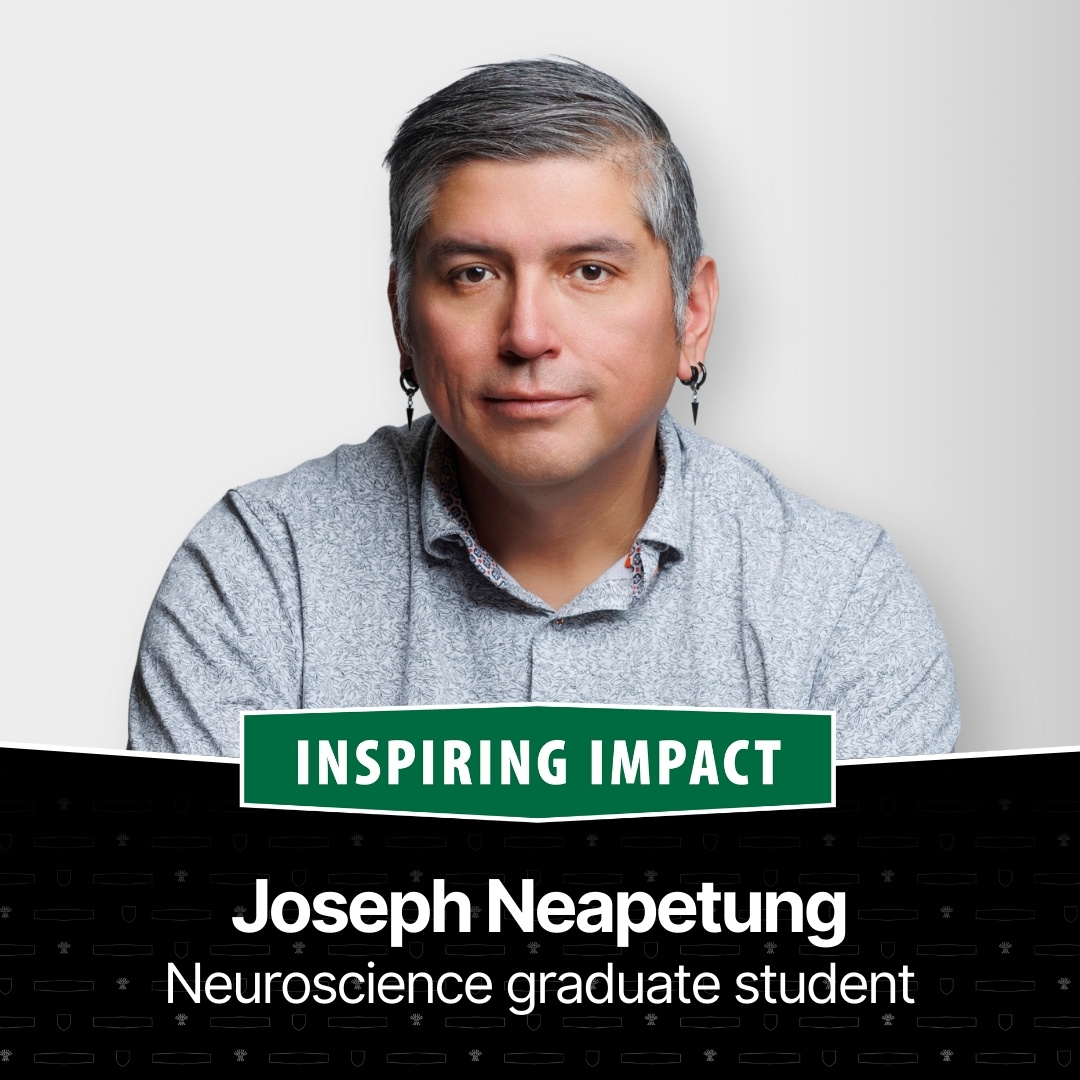
Indigenous neuroscience: The healing power of willow bark
Willow bark is a traditional Indigenous medicine with a rich history spanning thousands of years. It works by blocking pain signals in the nervous system and providing pain relief. The active ingredient in willow bark is salicin, which was the precursor to acetylsalicylic acid (ASA), or Aspirin, used widely in modern medicine. Beyond its pain-relieving properties, willow bark is also valued for its anti-inflammatory effects. The holistic benefits of willow bark seem to be enhanced by other compounds within the bark that make the effects of salicin more powerful. As an up-and-coming Indigenous neuroscientist, I explore the potential benefits of integrating Indigenous traditional medicine with contemporary Western practices, particularly through the lens of Indigenous neurology. By incorporating a collaborative approach to medicine, we can honor and learn from Indigenous knowledge and advance health benefits for years to come.
Joseph Neapetung is an Anishinaabe graduate student from Yellow Quill First Nation. He is currently enrolled in the Anatomy, Physiology and Pharmacology program in the College of Medicine at the University of Saskatchewan. Joseph is an up-and-coming neuroscientist and is an author and co-author of several scientific publications. He is currently finishing his MSc and undertaking endeavours to increase post-secondary enrolment of Indigenous students in the sciences. Joseph has been working to Indigenize neuroscience and incorporate an Indigenous lens into the sciences for the past decade. It is his intent to spread the idea of 'Indigenous Neuroscience' to help weave Western science with Indigenous worldviews.
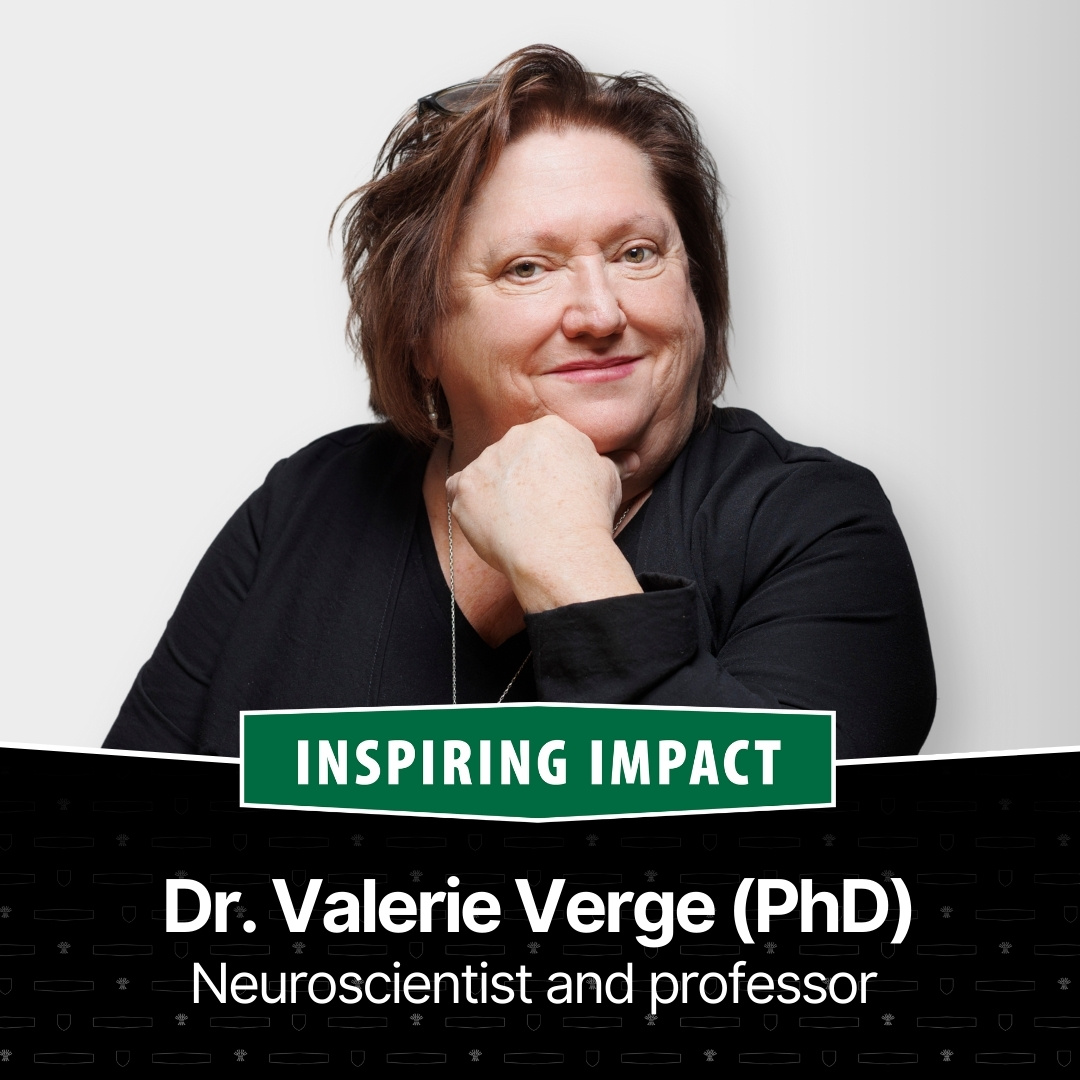
Breathing new hope into MS and nerve injury recovery
Nervous system damage is a leading cause of pain and loss of function in those with nerve injury or autoimmune diseases like Multiple Sclerosis (MS). In the quest to reverse this damage and improve patient quality of life, we and other neuroscientists are exploring the benefits of adaptive stress—like that of exercise or electrical nerve stimulation—on enhancing nervous system repair. Most recently, our research team has achieved exciting and encouraging findings behind the potential of a non-invasive approach called Acute Intermittent Hypoxia (AIH). Using the power of breathing alternating levels of oxygen and a healthy dose of neuroscience, we are at the forefront of exciting new and accessible treatments for significantly enhancing nervous system repair.
Dr. Valerie Verge (PhD) is a professor in the University of Saskatchewan's Department of Anatomy, Physiology and Pharmacology and director of the Cameco MS Neuroscience Research Centre. She earned her PhD at McGill University in 1990 in the Department of Neurology and Neurosurgery and conducted postdoctoral studies at the Karolinska Institute in Stockholm prior to her appointment in 1992 at the University of Saskatchewan. She has received many accolades, including being a Medical Research Council of Canada Scholar, Past President of the Canadian Association for Neuroscience and was named by MS Canada as being the 2019 Women against MS honouree. Dr. Verge is internationally recognized for her team’s research into the molecular basis of nervous system repair and strategies to enhance the intrinsic capacity for repair in peripheral nerve injury and Multiple Sclerosis. She has taken on many national and international leadership and advocacy roles and been named to Stanford University’s list of top 2% of most highly cited scientists worldwide.
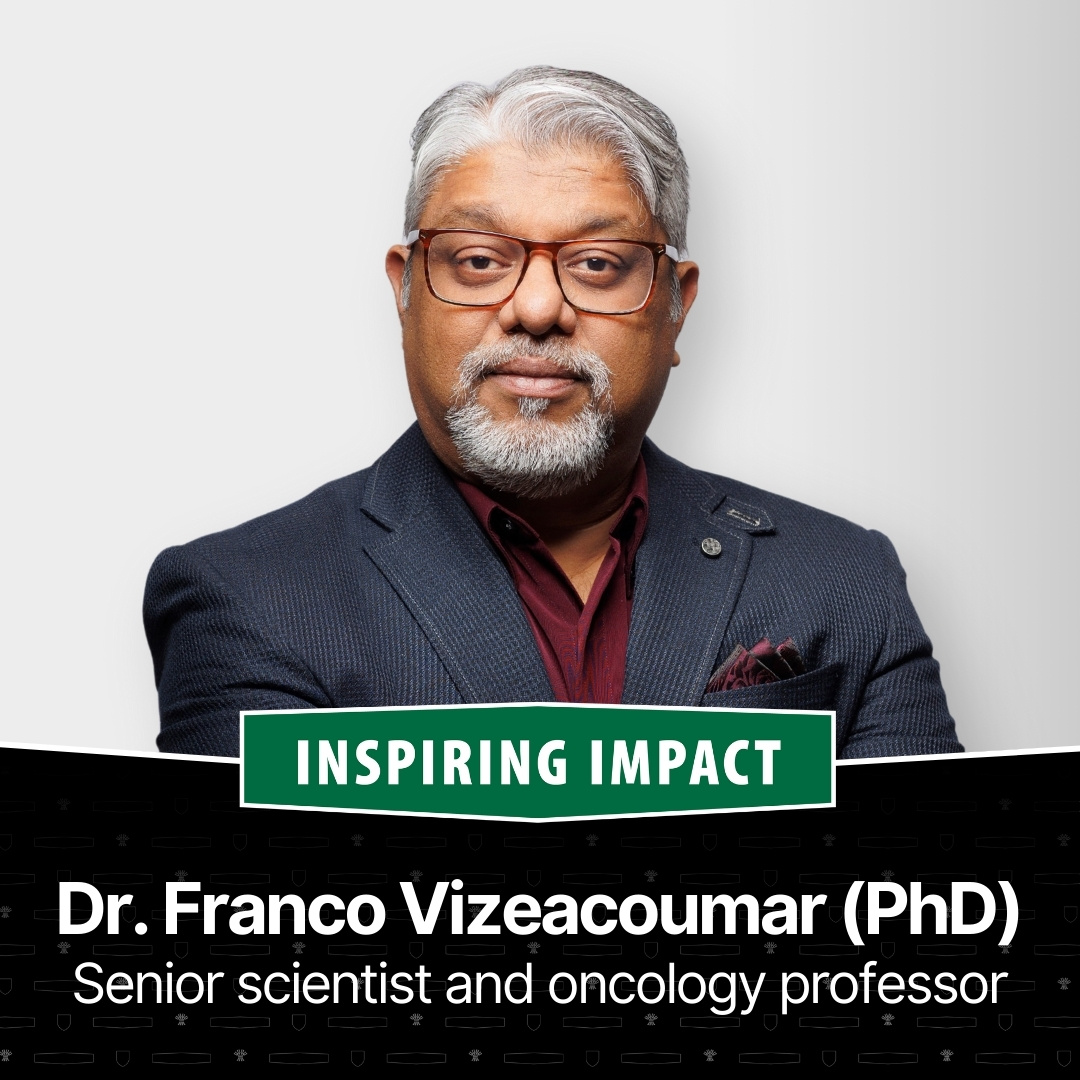
Building a cancer map: The road to a cure
Cancer has traditionally been treated based on where it originates in the body, with different therapies for different types. But now, researchers are shifting toward a more personalized approach, focusing on the genetic makeup of tumors. This shift holds great promise, but it can be taken even further. By uncovering the complex networks of genetic interactions within cancer cells, we can identify new vulnerabilities and improve how we target them. Tumors are complex and vary from patient to patient, which means there’s no one-size-fits-all treatment. However, by understanding the genetic pathways that cancer cells rely on to survive and grow, we can gain a clearer picture of how to stop them. As we refine this understanding, we’ll be able to create more precise and effective therapies, offering new hope for even the most aggressive cancers. By continuing to explore these genetic networks, we’re moving closer to transforming cancer treatment—and perhaps even finding a cure.
Dr. Franco J. Vizeacoumar (PhD) is a senior scientist at Saskatchewan Cancer Agency and associate professor of oncology at the University of Saskatchewan. He earned his PhD in cell biology from the University of Alberta and completed postdoctoral training at the University of Toronto. His research focuses on identifying novel cancer drug targets, using genetic principles such as synthetic lethality. His broader body of work spans genome-wide unbiased screens, machine learning approaches, drug repurposing platforms and mechanistic studies to identify these targets. Vizeacoumar has contributed extensively to the academic community by co-editing two textbooks, publishing over 70 peer-reviewed articles, and serving on numerous national grant review panels and the editorial boards of multiple journals. His research is supported by leading funding agencies, including CIHR, NSERC, CRS, SCA, SHRF, CFI, TFRI, and the Be Like Bruce organization.
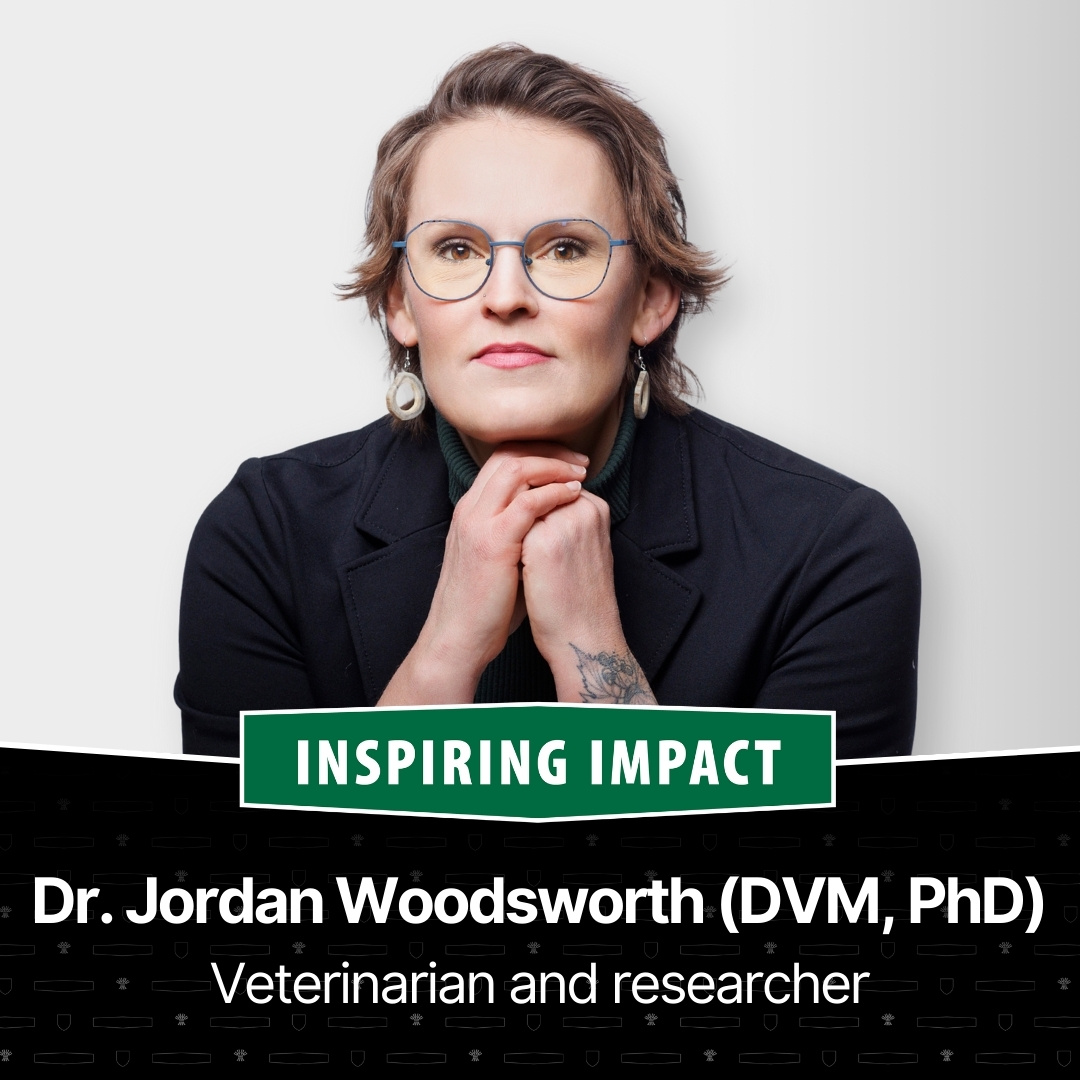
Are dog-human relationships the key to community health?
Dogs are widely recognized as being good for our health and well-being, but how does this change in homes and communities where veterinary care is inaccessible? As a veterinarian and researcher, I examine the strain that inadequate access to veterinary care can put on all our relationships, and how prioritizing relationships might just be the answer to improving the health of dogs, people and the communities they call home.
Dr. Jordan Woodsworth (DVM, PhD) is a veterinarian and community-based researcher at the University of Saskatchewan, working with and for Indigenous communities in Canada. Her aim is to support mutual health and well-being between animals and humans, with a particular focus on dogs. In her role as Director of Northern Engagement and Community Outreach, Jordan supports veterinary student learning and provides expert consultation to a variety of organizations and groups on animal health and welfare, community-engaged research, anti-racism and anti-oppression, and how to work with Indigenous communities as a settler in a good way. Her current work looks at solutions for the gaps in access to veterinary care in Canada, searching for effective and creative approaches to supporting the health and well-being of animals, humans and the communities they call home.
Questions about TEDxUniversityofSaskatchewan?
TEDxUniversityofSaskatchewan is an initiative organized by the USask Office of the Vice-President Research (OVPR), in collaboration with organizers and volunteers from across campus.
Questions about future TEDxUniversityofSaskatchewan events?

